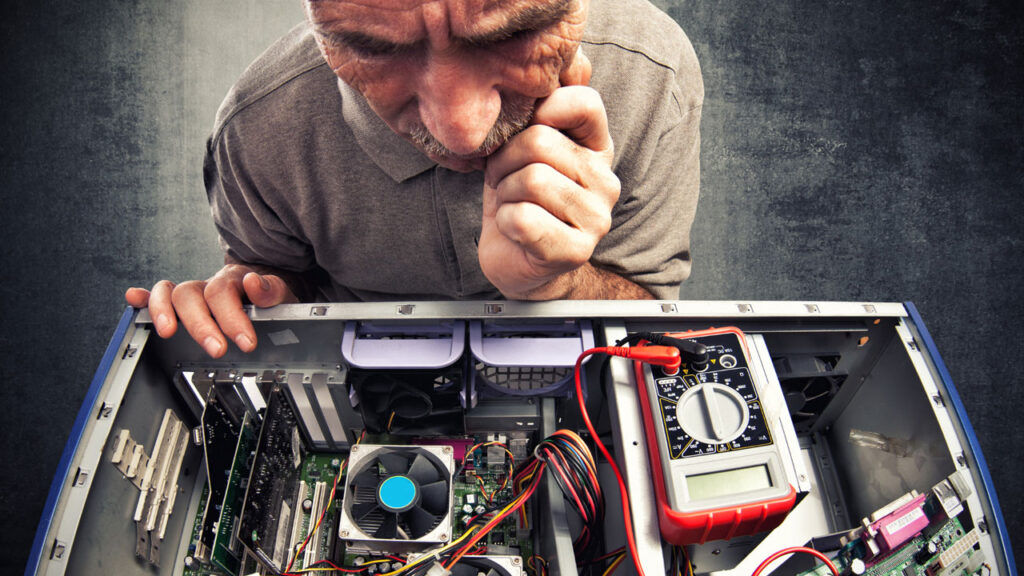Overclocking your PC can prove beneficial when you need a higher level of performance from your device — a level that can’t be met within its regular speed limitations. However, overclocking PCs does come with some risks and is not a viable option for everyone.
In this guide, we’ll take a look at the ins and outs of overclocking a PC, including what it is, its benefits and risks, and ultimately if overclocking is worth it. Let’s dive in.
What is overclocking a PC?
Overclocking means setting specific computer components at higher clock speeds or pushing them beyond their normal limits. What does overclocking do? Put simply, it enables better performance from the PC. It’s important to note, however, that the gains achieved through overclocking are not usually equal — the higher speed you gain from the overclocked component depends on the product at hand.
With overclocking, it’s important that users have ample knowledge of how it can potentially harm their PC, along with how to handle associated increased cooling requirements. For these reasons, it often isn’t recommended, or necessary, for beginners.
Why overclock?
As we’ve discussed, overclocking isn’t for everyone. However, competitive gamers, professional video editors and other advanced PC users who require a level of performance beyond their PC’s factory settings can benefit from overclocking. Of course, if you’re currently able to run the latest games or get what you otherwise need from your PC without overclocking, there’s no need to consider it.
However, if you do find your PC struggling, overclocking can move the frames per second (FPS) into a more beneficial setting. It’s important to note that many of the risks associated with overclocking can be mitigated if you’re careful, yet they can’t be completely eliminated. Overclocking will cause your device to use more power, energy and voltage, and ultimately decrease the hardware’s lifespan. Further, if carried out on a PC not designed for it, overclocking may also void its warranty.
How long does it take to overclock a PC?
The time it takes to overclock ultimately depends on what PC component you’re overclocking, and the process you choose to follow — it may take anywhere from a few minutes to a few days.
The short version of overclocking involves downloading the right software, and making changes to a few settings. The longer, and more methodical, approach involves some preparation beforehand, including undertaking sufficient research, and organising any required extra parts such as a third-party cooler. It then involves carrying out some basic tests, such as stress tests, and performing various Central Processing Unit (CPU) alterations. Note that it is always recommended that a stress test be carried out prior to any alterations.
Whilst the longer route involves a longer timeframe and the setting up of new parts, it is considered the safer route, yielding better results with overall fewer issues.
Benefits of overclocking a PC
As we’ve discussed, overclocking is not a necessary option for all PC users. Those who do choose this option, however, may enjoy the following benefits:
- Better performance
Without a doubt, the biggest benefit of overclocking is improved performance. This is likely the reason for most gamers choosing to overlock, and is especially the case for CPU overclocking, where speed boosts are most potent. Yet, there are benefits to be had from overclocking all components, including the RAM and GPU — even slight increases with the GPU can be enough to allow gamers to hit 60FPS in their favourite games.
- Money saving
For those on a limited budget and not yet able to upgrade their hardware, overclocking can help squeeze more performance from older components, such as the CPU. For example, a gamer with a dated processor can overclock to improve CPU speeds, bringing it up to the level of a more advanced processor with a higher factory clock. Put simply, overclocking can help you get the most from your current PC setup, helping you to close the gap on a more advanced processor.
Risks of overclocking a PC
Here are some of the risks that are associated with overclocking:
- Increased temperatures
Each time a component is overclocked, it produces more heat, and requires more resources, such as power. It therefore may be necessary to invest in an external cooling setup — without adequate cooling, the overclocked component will be prone to overheating, malfunction and increased wear and tear.
- Shorter lifespan
The overclocked component may also be at risk of a reduced lifespan. This is especially true with unstable overclocks, the wear and tear that comes with a stable overclock is minor, as it doesn’t run at extremely high temperatures, and hence doesn’t impact the component’s lifespan negatively.
- Add-on costs
With CPU and RAM overclocking, additional set up items will be required. This may include an overclocking-compatible motherboard and sufficient cooling apparatus. Although these extra costs are a downside, the additional equipment will not only minimise potential damage to your PC, it will also enable you to push the clocks beyond their limits to experience great results.
- Instability
Instability is another factor to consider with overclocking. Although rare, there may be instances of instability, potentially causing program or system crashes — even when the overclock is stable. Having said this, instability is less likely when the overclock has been set up correctly.
Is overclocking worth it?
To help answer the question of whether overclocking is worth it, let’s take a look at the components that can be overclocked:
- CPU overclocking
The CPU is the most costly component to overclock, requiring not only an overclocking-compatible motherboard, but in most cases, additional cooling. You may also need an overclockable processor. For beginners especially, CPU overclocking is generally not recommended. Investing in a system that meets all of your needs, and has sufficient room for growth, is a better option — overclocking can be explored with more experience in how to overclock a PC safely.
- RAM overclocking
RAM overclocking involves a complicated process, so in many cases, it may be a more viable, and safer, option to simply invest in a better RAM. Yet, there are some scenarios in which RAM overclocking can come in handy. The most advisable course of action here is to research whether it’s a good option for your particular PC.
- Display and GPU overclocking
Given that there is no need to invest in additional cooling or other premium parts, GPU and display overclocking are usually considered to be worth it. However, as with all components, it’s vital that you take the time and effort to execute the process correctly, in order to ensure the best and safest result.
Jim’s I.T — your PC and laptop repair specialists
We hope that this post has given you some insight into overclocking a PC, and whether it may be a viable option for you. Need further professional support with a PC or laptop issue? At Jim’s I.T, we’re here to help.
At Jim’s, we provide an extensive range of affordable computer and laptop repair services — no matter the problem at hand, our expert team has got you covered. To make things even easier, we offer free quotes, fixed pricing, and a handy on-site same day service. Keen to learn more? Simply request a free quote, or get in touch with our team today!

